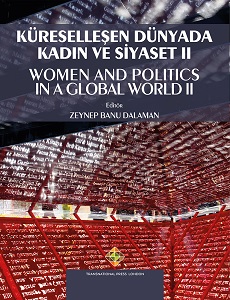‘Complementary’ or ‘Equal’? The Rise of ‘Moderate’ Islamism and The Undeclared War on Women Rights in Tunisia
‘Complementary’ or ‘Equal’? The Rise of ‘Moderate’ Islamism and The Undeclared War on Women Rights in Tunisia
Author(s): Hajer Ben Hadj Salem
Subject(s): Gender Studies, Human Rights and Humanitarian Law, Islam studies
Published by: Transnational Press London
Keywords: State feminism; moderate Muslims; women rights;
Summary/Abstract: Since the last decade of the 20th century, the UNDP yearly Human Development Reports have played an invaluable role in shaping Western political strategists and actors’ wisdom about the ruling regimes and the status of women in the MENA region through linking Human development and Human rights indicators to the Gender Development Index. The 2010 Report, published on the eve of the so-called “Arab spring,” placed Tunisia ahead of most of the Arab countries in terms of Gender Development despite its relatively low Human Development Index. However, Tunisian women took the international observers by storm as they featured prominently on the frontlines of the popular demonstrations which broke out across the country brandishing slogans denouncing lack of freedom, employment opportunities, and dignity. The un-Islamist leaning of these predominantly unveiled women and their slogans challenged not only Western received wisdoms about the status of women in Muslim societies, but also a whole body of new Western strategic thinking about the post-secular dictatorships Muslim world, conferring upon “Moderate” male Muslims and Islamist women the daunting task of Muslim women liberation.This paper studies how the Tunisian women’s experience with the Islamist leadership prior to the 2014 elections represented a real challenge to the ideological underpinnings of this neo-Orientalist discourse. First, it defines neo-Orientalism and demonstrates how it paved the ground for the ‘Islamic spring’. Second, it gives a brief overview of the status of women rights in Tunisia, underscoring the limitations of state feminism prior to 2011. Third, it dissects the anti-women rights agenda of the Islamists and debunks the myth of the “Islamist women as custodians of women rights” by shedding light on landmark conflicts between women rights activists and the Islamists during the constitutional drafting process.
Book: Küreselleşen Dünyada Kadın ve Siyaset II
- Page Range: 107-116
- Page Count: 10
- Publication Year: 2021
- Language: English
- Content File-PDF

